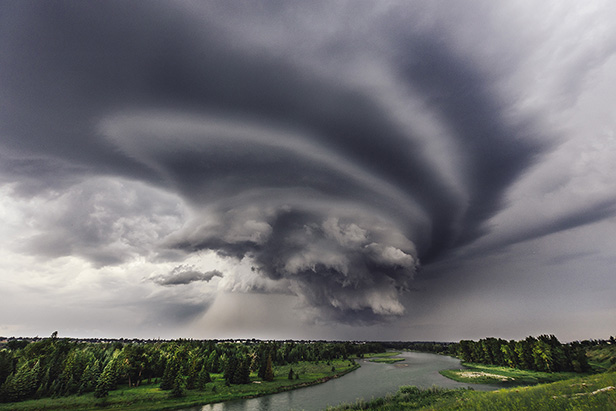
With the arrival of spring weather, including heavy rainfall forecast across parts of Ontario, Insurance Bureau of Canada (IBC) is reminding Ontarians to prepare for the increased risk of flooding.“Flooding and related sewer backup damage is costly for homeowners, businesses, and municipalities. However, there are steps you can
take to help mitigate the risk of water damage to your home and property,” said Kim Donaldson, Vice-President, Ontario, IBC. “We encourage consumers to contact their insurance representative if they have questions about their individual insurance policies, including optional add-on coverage for sewer backup or overland flooding. Ontarians can also contact IBC's Consumers Information Centre at 1-844-2ask-IBC. We're here to help."
IBC's Top 10 tips to help protect your property from water damage:
- Keep all your floor drains and the storm sewer grates on your street clear of obstructions. Consider installing a backwater valve when possible to do so.
- Make sure downspouts are clear of debris and that they direct water away from your home to help prevent basement flooding.
- Move valuable items out of your basement to higher levels in your home.
- If you have a sump pump, ensure that it is working properly and has a backup power source.
- Have someone check your property if you are away from home.
- If you need to drive, drive according to the conditions and do not drive over flooded roads.
- During periods of heavy rainfall, limit the amount of water usage (including appliances such as dishwashers or clothes washers) within the house.
- Consider using rain barrels to help hold and manage excess rainwater around the property.
- If flooding is imminent, shut off electricity to the areas of the home that may be affected and use sand bags, or install flood shields or built-up barriers to stop water from entering through basement windows and doors.
- Raise large appliances, electrical panels, the furnace and the hot water heater off the basement floor on wood or cement blocks. This should be done by professionals well in advance of potential flooding. If a flood is imminent, consider anchoring them and protecting them with a floodwall or shield.
Rest Easier. Know What’s Covered.
- Water damage in a basement due to a sewer backup is only covered if you have purchased specific, optional sewer backup coverage.
- Overland flood damage, which occurs when bodies of water such as rivers overflow onto dry land, is only covered if you have purchased specific, optional overland flood coverage. However, if you live in a known flood plain, this coverage may not be available.
- Home insurance and business insurance policies generally do not cover damage caused by coastal flooding and/or storm surge.
- Damage to homes caused by wind is usually covered. This includes damage caused by flying debris or falling branches or trees, or damage caused by water entering through openings.
- In certain circumstances, homeowners who are unable to return home due to insured damage are entitled to additional living expenses.
- If you have purchased comprehensive or all perils automobile insurance coverage, damage to vehicles from wind is usually covered. This coverage is not mandatory, so check your policy.
Flooding remains Canada's greatest climate-related risk, with more than 1.5 million households across the country being highly exposed to flooding. IBC looks forward to continuing its work in close collaboration with the federal government, Ontario, and the other provinces and territories, to establish the country's first national flood insurance program within the next 24 months.
Announced in Federal Budget 2023, this new program is expected to help speed up recovery and rebuilding for displaced families and businesses in flooded communities, and reduce unplanned disaster costs facing the federal and provincial governments. Its implementation is the single most important step Canada can take to better prepare for the impacts of climate change.

